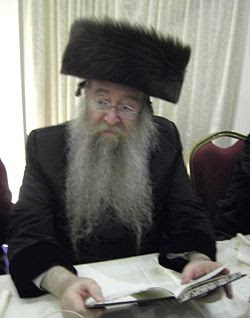
QUICKIE/FUNFACT: Why does the Torah teach that IT WILL BE GOOD FOR YOUR CHILDREN specifically with regards to the command not to eat blood? (12:25)
A: The Kli Yakar explains that the reason why the Torah doesn't allow eating blood is because ingesting blood leads one to develop negative character traits. That, in turn, would certainly impact one's children as well. Thus, the Torah relates that refraining from eating blood will BE GOOD FOR YOUR CHILDREN as opposed to the negative results which would result from eating it.
*Courtesy of Rabbi Dov Lipman Shlit"a
(Devarim 15:7 )"If there be a destitute person among you, of one of your brothers in any of your cities, in your land that Hashem, your G-d, gives you, you shall not harden your heart not shall you close your hand against your destitute brother."
From the above verse we learn that the Torah instructs Klal Yisrael to give Tzedaka . Charity is an incredibly important mitzvah (commandment). This also can be seen in Mishlei 21:3, "Doing tzedaka and justice is preferable to HaShem than a sacrifice". In addition the Prophet Isaiah (1:27) says that It is through the mitzvah of tzedaka that the Jews shall be redeemed, as it says, "Zion will be redeemed through justice, and those who return to her through tzedaka". Giving tzedaka however is not just a noble act, giving tzedaka demonstrates a basic principle in Judaism. The statement is that our money and possessions are not truly ours, but are merely given over to us by HaShem to use as He commands us to.
The Alshech says that the above verse contains an additional moral lesson for man, which comes to explain the logic of the mitzvah of Tzedaka. The Pasuk says, "You shall not harden your heart, nor shut your hand from your brother who is poor; rather, you shall surely open your hand to him." The Alshech expounds that whatever we do now, when we die we will have to open our hands. At that time, none of our material riches will go with us. All that will go with us are our good deeds. Why then, the Alshech posits, should we refrain from opening our hands when we have the ability to open them to others who are in more need than we are?
The Alshech seems to strike a nerve when he explains this mitzvah. In our day to day lives, we seem to live through our money and our material positions. Baruch Hashem many of us have been blessed with good fortune but how often do we think about our brothers and sisters who are living off of welfare when we get something excessively expensive? We should teach our children at a young age the importance of putting a quarter in the Tzedaka box. For Chazal say that "a person should grow accustomed to giving tzedaka by giving time after time, and then giving will become second nature with him, and he will not attempt to avoid giving by using various excuses."
May we receive chizuk from these words of Chazal and may our perspective change ever so slightly so we can not only help others but also help ourselves.
HAVE A FANTASTIC SHABBOS!






